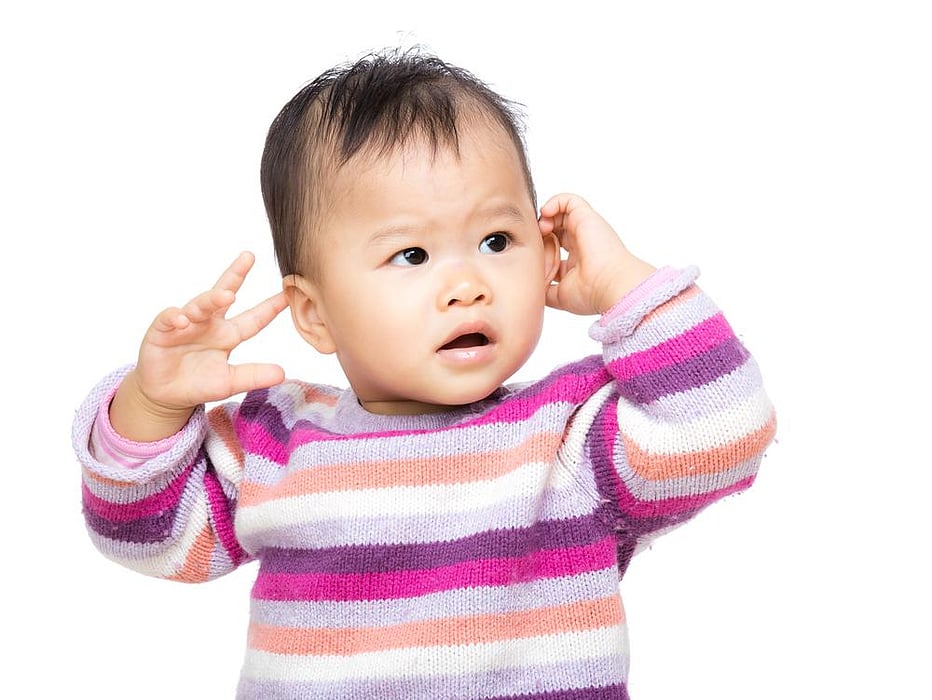Object Lodged in Nose or Ear

What should I do if my child gets something stuck in her ear or nose?
Stay calm, and reassure her that it's no big deal. If the object is clearly visible and soft or flexible enough to be removed easily, grasp it with a pair of tweezers and gently pull it out. Never attempt to remove an object with a cotton swab or household items such as matches or toothpicks; you could end up pushing it farther in and causing damage. Also, don't try to remove the object with tweezers if your child won't hold still.
What if the object still won't come out?
For an insect caught in your child's ear, face her ear toward the sun or bright light; the insect may crawl out on its own. If not, have your child lie down on her side, and fill the ear canal with mineral, olive, or baby oil, which should wash the bug out. For all other objects, call your pediatrician or family doctor.
If an object is lodged in your child's nostril, have her push in the other nostril and gently try to blow the object out. Spraying a nasal decongestant into the affected nostril can reduce swelling, making it easier to pull out the object. Again, if you can't remove the item, call your child's doctor.
Is it possible for something to get lodged without my child noticing?
Small children have a fondness for putting all kinds of things up their noses or into their ears -- from beads to popcorn kernels -- and they may not even realize when something gets stuck there. Your first clue may be a nose that's running with smelly discharge on just one side. Or your child may complain that something sounds funny in her ear (there won't be any discharge from an ear). Look to see if something is stuck inside. You may not be able to spot the object, however, so if you suspect there's a problem, you'll need to visit your doctor.
References
Robert H. Pantell M.D., James F. Fries M.D., Donald M. Vickery M.D., Taking Care of Your Child: A Parent's Illustrated Guide to Complete Medical Care. Da Capo Press. .
Mayo Clinic. Foreign object in the ear: First aid. http://www.mayoclinic.com/health/first-aid/HQ00061
Image: Shutterstock
Related Posts
Encontrar servicios de salud mental en español se hace más difícil en EE. UU.
LUNES, 9 de mayo de 2022 (HealthDay News) -- La salud mental se ha convertido en...
Psychological Interventions May Reduce Depression in Dementia Patients
WEDNESDAY, May 4, 2022 (HealthDay News) -- Talk therapy may alleviate depression...
El ejercicio ayuda a dormir, ¿pero cuál es el mejor?
JUEVES, 3 de marzo de 2022 (HealthDay News) -- Las personas que duermen mal con...
